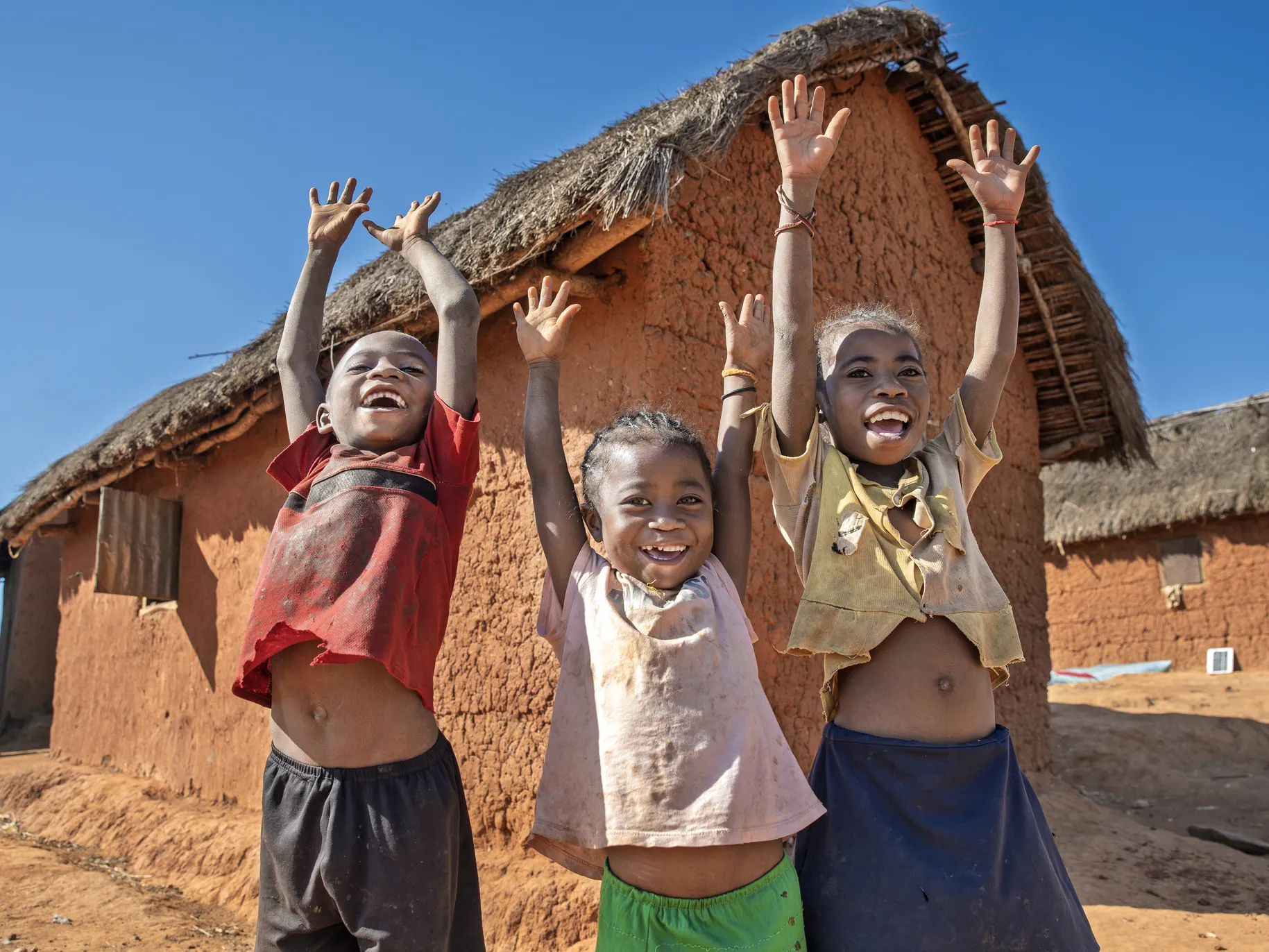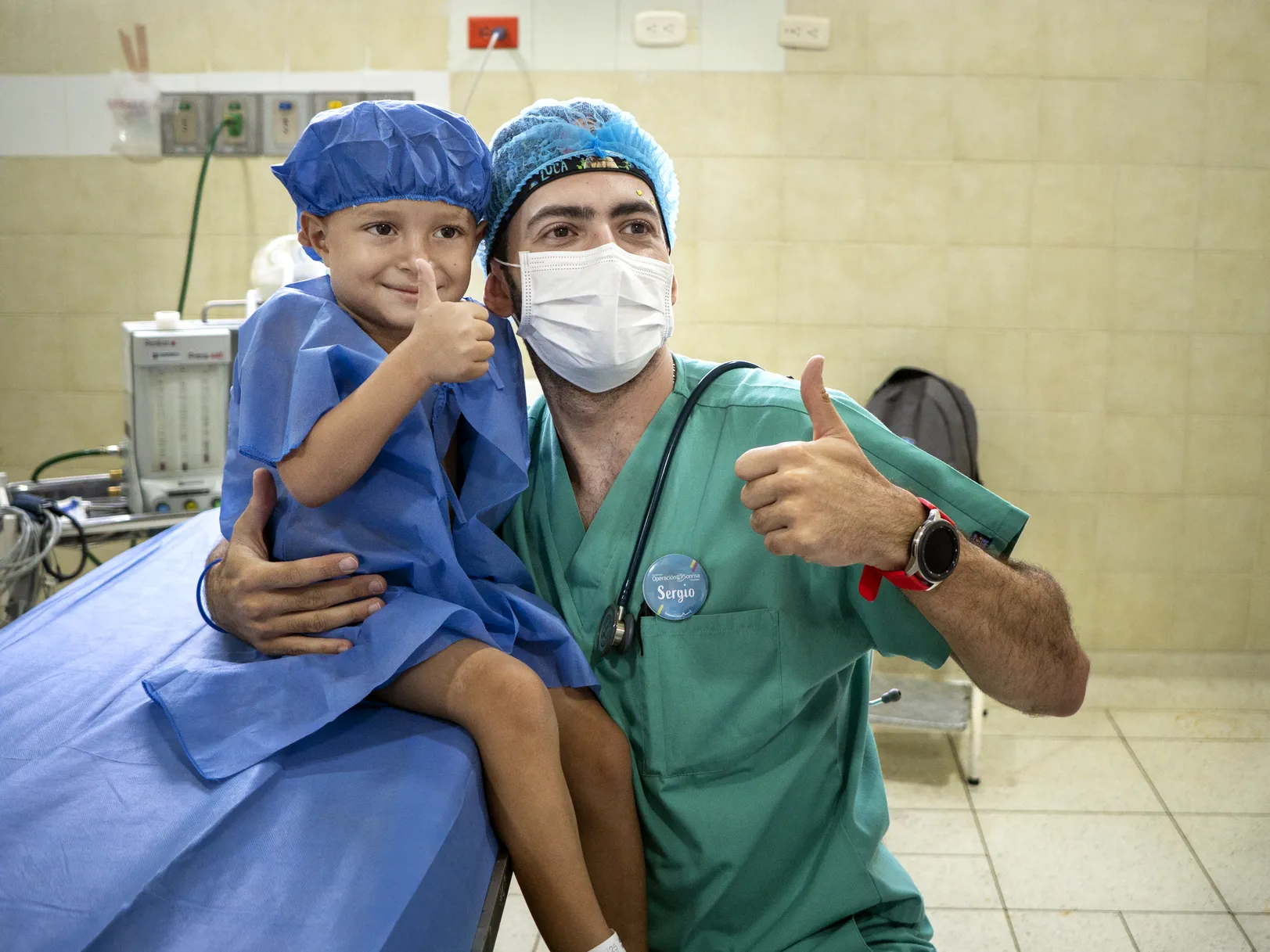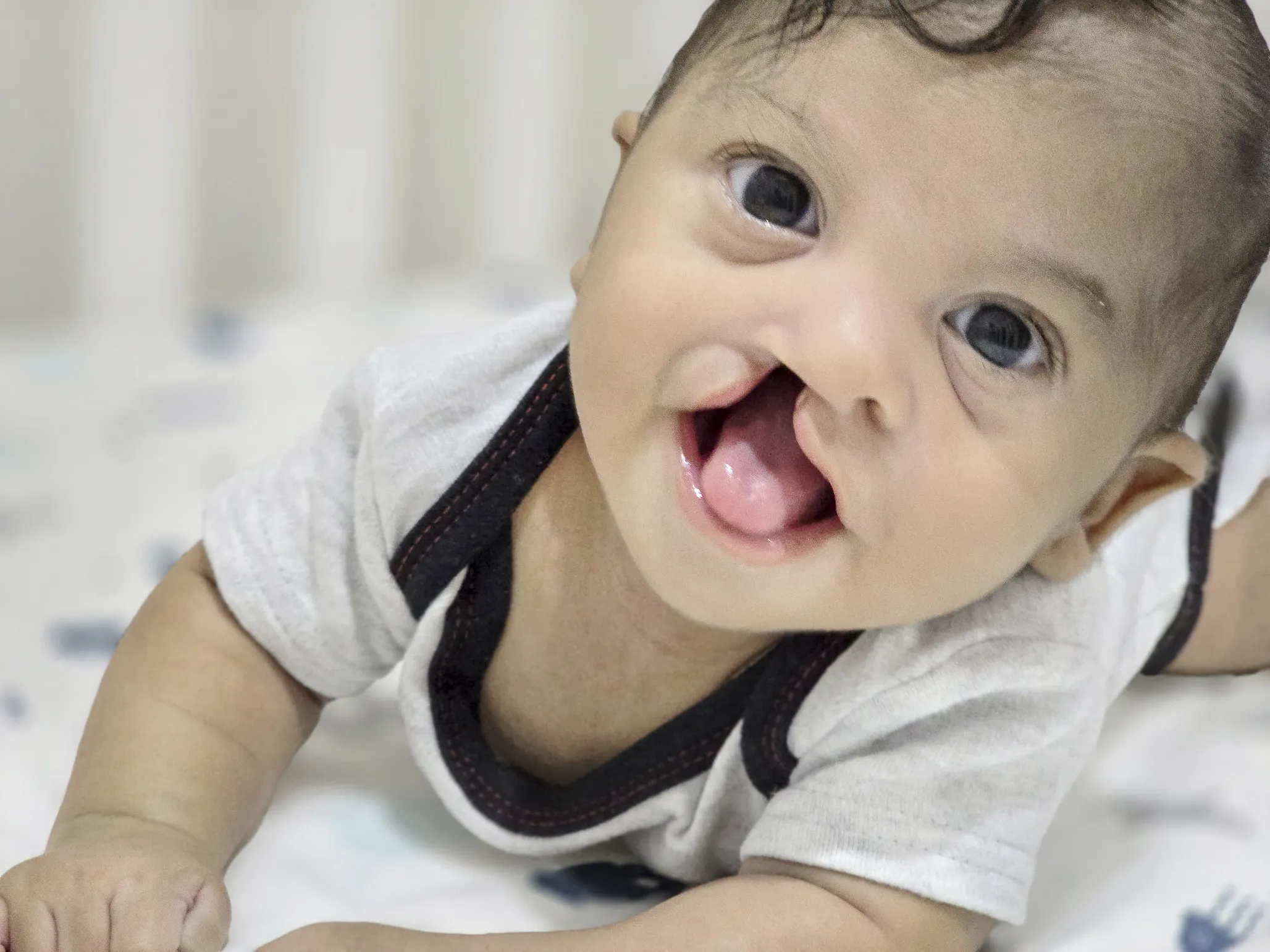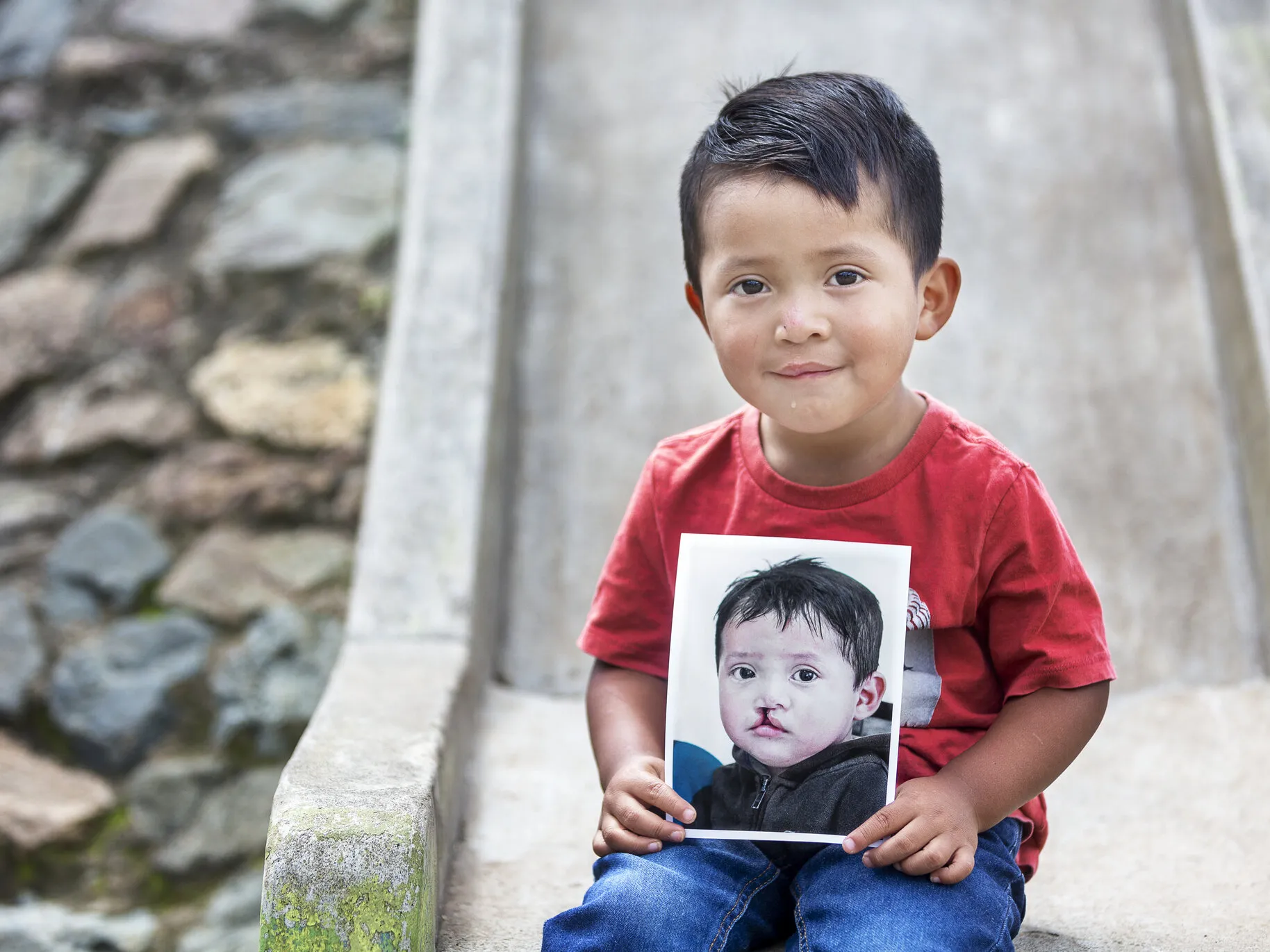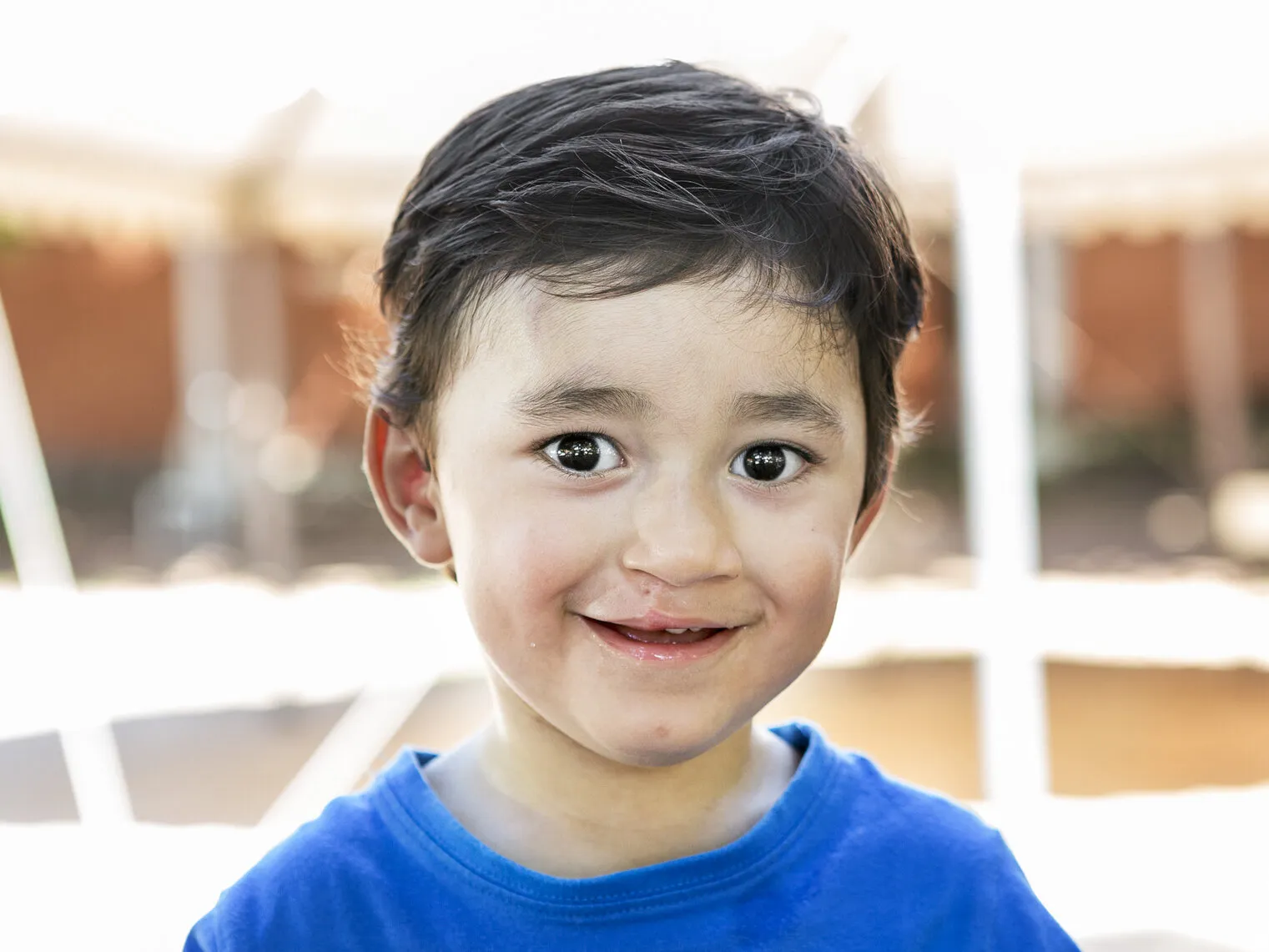Patients
Amid Crisis, Healing
As the tropical sun beats down and the arid wind blows, plastic bags and tumbleweeds roll across expansive and barren dust fields where La Guajira Desert meets the outskirts of Uribia, Colombia.
Across a dry ravine, a sun-parched clay road bends toward an array of small lots lined with fences made of cacti lashed together by metal wire. The pieces of plastic trash stuck to the thorns flap in the gusts. On the lots stand tiny shacks made of thin pieces of wood, cardboard, fabric, metal or fiberglass – anything that can create a barrier against these harsh elements.
This is the April Third refugee camp. This is where Marbelis, her family and many hundreds more displaced Venezuelans have fled the political and economic chaos that’s plunged their home country into crisis.
As of the publication of this story, more than 4.5 million Venezuelans have relocated with over 1 million seeking refuge in neighboring Colombia.
Just down the road from Marbelis’ shelter, a group of young children buzz around a neon-painted playground and fill the air with laughter, a stark contrast to the austere surroundings.
Marbelis’ son, Pedro, is part of the fray. But unlike the friends that he’s made at April Third, the 7-year-old is living with an unrepaired cleft lip and cleft palate.

It’s here that Marbelis has finally found hope for a brighter future for Pedro and her family.
“When we arrived here, I felt better,” Marbelis says. “It was a joy to come here, for me and for my children. The food is easy to get, and it’s not like that there.”
As Marbelis tells us about life in her native country, she fights to hold back tears.
As the conditions continued to deteriorate in Venezuela, so did the family’s ability to make ends meet. Often, Marbelis’ husband, Nelson, would work long hours on a farm and still couldn’t afford to feed their family of five at the end of the day. Rolling blackouts became increasingly frequent.
She also lost hope that Pedro would ever have the chance to receive surgery.
“When I was in Venezuela, I found out about a surgical [program] (unrelated to Operation Smile) and enlisted, but nothing happened,” Marbelis says. “Some physicians came to our house advising that I would have a chance for him to get an operation. I enrolled in that, but again, nothing happened.
“I got tired of waiting.”

In March 2018, the family decided to leave Venezuela for Colombia. Nelson, originally from Colombia, knew that a better life for his family lie on the other side of the border, including the opportunity for Pedro to receive cleft surgery.
“I felt sad, but we had to do it because of the situation in the country but also for the sake of my son,” Marbelis says. “We came in a pickup truck called Listineros. We left early and arrived at night.”
It would take several months before Pedro’s family settled in the April Third camp. However, it was only a matter of weeks after their arrival that the local health care community identified Pedro and his need for cleft care.
Marbelis learned about Operation Smile Colombia and the possibility of receiving free cleft surgery from the woman who managed a food hall in the camp.

“She asked me for his documents, and I gave them to her right away,” Marbelis says. “I was glad and filled with enthusiasm. She was supporting me, and as she moved forward, so did I.”
Soon after her arrival, Marbelis began working as a cleaner for a man in Uribia. After he learned that Pedro was living with a cleft condition, he contacted Aristides Ortiz, a public health coordinator for Uribia’s health department.
Ortiz then connected with Operation Smile Colombia. They confirmed that Pedro was the same boy living in the April Third camp that they identified through the food hall manager’s outreach. Though they missed the 2018 Riohacha medical program by two months, he was scheduled to attend the following program in August 2019.
Ortiz tells us that many of the Venezuelan refugees living in several camps that have emerged around Uribia arrive in poor health. He says the two local hospitals only have the capacity to treat refugees in emergency situations, leaving conditions like cleft lip and cleft palate unaddressed.
Nongovernmental organizations partner with the local health system to provide basic treatments, but the need here remains dire. For people living with untreated cleft conditions in marginalized communities like Pedro’s, the annual Riohacha program is their only chance to receive free surgery.
Marbelis says that while Pedro was fortunate to avoid the severe health problems that can be caused by cleft conditions, he still carries the emotional burden of having been bullied by his former classmates in Venezuela. He also becomes frustrated when people misunderstand him when he speaks.

Accompanied by Ortiz, Marbelis and Pedro arrive to the Riohacha program hopeful that Operation Smile Colombia medical volunteers will determine that Pedro is healthy enough to undergo surgery.
After receiving a comprehensive health evaluation, Pedro proves to be an ideal candidate for surgery and is placed on the schedule of Dr. Mauricio Herrera, Operation Smile Colombia’s medical director and volunteer cleft surgeon.
“I have waited for it to be done since he was born, but it never worked out,” Marbelis says. “At last, the time for his surgery has come, and I am very happy.”

According to Martha Tristancho, former executive director of Operation Smile Colombia, it’s the organization’s duty to serve families like Pedro’s.
“Every day we find more people who need us, and through our volunteers and the care they offer, we have the opportunity to give smiles,” Martha says. “That makes me believe more every day that we must continue to have a commitment; that we must increase our capacity to offer care to everyone who comes to us.”
Mauricio adds: “It’s really sad that, because of a situation they can’t control, there is a delay in their treatment. It’s really not fair; children should receive surgery at the right time, so they can live a normal childhood and not have to wait for the situation in the country to improve or the health system to change.”

When the time comes for his surgery, Pedro smiles as he holds hands with anesthesiologist Dr. Hernando de Vivero as they walk to the operating room.
In a little more than an hour, Mauricio performs the surgery that Pedro deserved to have within the first few months of his life.
Soon after Pedro is omitted into the recovery room, Marbelis is overcome with emotion when she sees her son’s new smile for the first time.
“I almost ran in here, and when I saw him, I started to cry, because he looks so beautiful.”
But Marbelis knows that this is only the beginning of Pedro’s cleft care journey. Before he is released to return home, Pedro is scheduled to receive cleft palate surgery at next year’s Riohacha program. While the future remains precarious for her family, Marbelis’ resolve for Pedro is absolute.
“We’re ready for his palate surgery now,” Marbelis says. “I will keep fighting until everything is done.”

One year later, Pedro returned to receive his cleft palate surgery at Operation Smile Colombia’s first surgical program amid the COVID-19 pandemic.
“I feel good, very grateful that my son has had surgery,” Marbelis said. “I have waited so long and, finally, the time came.”
Pedro continues to receive ongoing therapy to improve his speech.
“He did not pronounce his words well,” she said. “Now he says, ‘Mom.’ He says, ‘Dad.’”
Today, Pedro’s future is brighter.
“There was a time that I couldn’t (get surgery for Pedro), but it was achieved with Operation Smile. I’m very grateful to them.”

